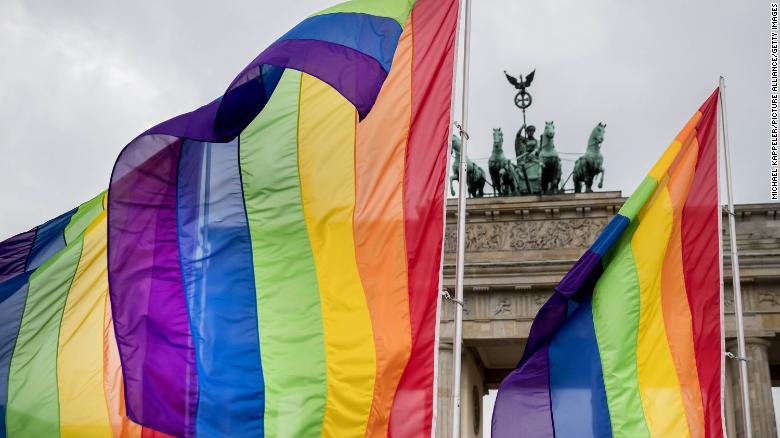
My Journey Towards Open Theism
by R.E. Slater
May 15, 2020
Over the years I have made available on this website several hundreds of articles working through Calvinism, Arminianism, Freewill, Sin, Judgment, Open and Relational Theology. More recently, this would include Process Theology and what that approach can mean to Christian doctrine, the sciences (ex., process evolution, process religion, process psychology, process sociology, etc.), and societal living. This, in addition to many, many other topics related to the Christian faith and evangelical church.
Today's post is but a microcosm of those fuller discussions which are available to the reader on this website when reflecting upon the hue-and-spectra of what is being stated in Christian circles today. This is seen most prominently in the evangelical church's harmful entanglement into empire politics proving itself so directly contrary to the gospel of Christ in the current environment of post-truth, vulgar Trumpian practices of dishonesty, non-humanitarian policies, blatant use of undemocratic power, and willful authoritarianism.
For myself, part of breaking away from evangelical teaching was not only its unbiblical view of a disapproving, unloving God, but its corruptible ties to community leadership which, unsurprisingly, reflected its view of God in the tone-and-tenor of unethical treatment of those unlike its own white gospel and congregation. It defeated its basic missional statement to bring Christ to all the world. To all races, genders, religions, cultures, and ethnicities. The Christian God is not the Western God of the evangelical church. God is the God of all the world. Of all cultures. Of all persuasions. As such, my breakaway was both necessary and directional.
Thus my long journey began in revisiting what I had learned from wonderful evangelical teachers, clergy, and lay leaders of the past to what it might become through another lens less committed, if at all, to the basic evangelical tenets of Calvinism - and/or denominational distinctives based upon Calvinism - when reading and interpreting the bible. It required removing the doctrinal boundaries of Calvinism, valuing doubt and uncertainty, and attempting to reconstruct an understanding of our Creator God perhaps through more expansive, contemporary forms of hermeneutical interpretations.
My tradition is that of Baptist, which means I was as influenced by Calvinism as much as I was by the Wesleyan/Methodist doctrine of Arminianism. Yet, as the years went by my denomination's affiliations, if not sentiments, were moving steadily towards a form of neo-Calvinism even as I was beginning to move in the opposite direction away from it. Belatedly of course, and long after my evangelical bible training and seminary studies, did I come to a personal precipice to move against it. Eventually I began to grasp that the direction I needed to go required removing the obstructions binding my feet to where the Spirit was leading me. And make no mistake, the weight of God's Spirit was heavily upon me, even as I dealt with an unwanted year of personal agony and darkness. Whether I wanted it or not, the Lord led me into a wilderness which took some time to travel across.
In hindsight, it’s amazing how hard a task this proved to be, and how deeply unsettling it became personally, when coming to terms with deconstructing and reconstructing my faith after so many long years of committal to its forms and perceptions. I had grown up in fundamentalism, and then progressed towards its more liberal cousin, conservative evangelicalism. So you can see the distance I had to travel towards my present allotments today which I have no name for because of its studied progressiveness to creating a contemporary, postmodern faith. If done poorly I might have become shipwrecked upon the shoals of unbelief and cynicism. Essentially, another None and Done. If done rightly, I had hoped to build on past experiences and knowledge towards a positive meaningfulness of faithful apprenticeship in the best orthodox traditions of the church. With the Lord's gracious help, this I think, has occurred, making me all the more thankful that I had journaled my exploration through this website over the years as I reflected, critiqued, and drove forward with bountiful hopes for the future of a contemporary, Christ-filled, Christianity.
Peter Rollins, The Idolatry of God
Peter Rollins, The Idolatry of God
Letting Go of the Past
As stated earlier, I will be short and to the point, in the following observations. Many longer discussions can be found here on the website for any related topic wished to be explored. So here we go...
Once rejecting Calvinism's view of the bible where God's wrath and judgment is made the centerpiece of theology, and rejecting how Calvinism is the be-all, end-all of all interpretations of God and the bible, I could then began exploring Arminianism, where God's love and our wellbeing is made the centerpiece of theology. In this endeavor I found the church historian, Roger Olson, curiously of Baptist and Arminian background, a great guide and help. When done, it brought forward thoughtful questions such as to what kind of God we taught and worshipped. Whether God is Judge or Savior; Condemner or Helper; Far or Near to us. This new path I was on had to first address who God was in relation to my sin and its outcome.
In Arminianism, freewill is made front-and-center over God's sovereign determination of our fate as concluded by Calvinism. We, as sinful beings, are free and open to follow God or follow our own sinful ways. There is no mystery here. At once, it removed God from the role of our Judge to the role of our Savior. Though Reformed theology teaches we are all under God's wrath without Christ, under Arminianism we are under God's loving care and direction leading to salvation as sinners. It does not deny judgment for our sins but lays it firmly upon us, not God. The sin is mine, and mine alone, as is its conclusion whether to repent or not by the Spirit of God. Calvinism teaches our fate is sealed in God's election and predestination of our lives. Thus our futures are closed and not open, and our freewill (sic, agency) is denied.
Under Arminianism, a God of Love loves at all times. This means that God is not in the business of condemning but aiding; not excluding but assisting us in our sin and sinful surroundings. Rather than abandoning us as sinful beings God comes in salvation to deliver us from sin that we be remade in the image of Christ. Conversely, when we refuse God's attentions to our salvation (sic, not only as a faith expression but as a faith profession) than God allows us in our freewill to refuse His benevolence. But like a loving parent, God is "hard of hearing," unwilling we refuse Him or track away from Him. He never leaves us even in our deepest sin.
Like the proverbial Hound of Heaven, God will never leave us nor abandon us. At all times God offers not only eternal life, but an enriching life yearning to love all things and all people - even as He loves and partners with us towards helping us do His will of goodness and love. Judgment comes only through ourselves - not God. Our sin judges us - not God. The results of our sin harm us - not God, who feels harmed when we fail and sin. Who suffers with us and with those whom we cause to suffer. Being borne in the image of God is to be borne as a free will being. We have a free will to use with God as our guide and helper, or without God as our guide and helper. The choice is ever ours even as the Spirit of the Lord ever calls us to our Lord and Savior by faith repentance and confession towards faith living and profession. We are never abandoned of God. God is always with us yearning to help us break free of our sin which binds and shackles us.
I FLED Him, down the nights and down the days;
I fled Him, down the arches of the years;
I fled Him, down the labyrinthine ways
Of my own mind; and in the mist of tears
I hid from Him, and under running laughter.
Up vistaed hopes I sped;
And shot, precipitated,
Adown Titanic glooms of chasmèd fears,
From those strong Feet that followed, followed after...
- [Excerpt] Francis Thompson, "The Hound of Heaven"
Letting the God of Our Present
Secondly, once a loving God is placed in the center of the bible then all the church's doctrines must reflect God's love and not God's judgment. It's a logical result. John Calvin chose to emphasize sin and judgment. A generation later Jacob Arminius chose to see God as love with the consequence of loving, saving divine action. As a doctrinal illustration, the doctrine of eschatology then becomes less dark and earth-ending. Our "end-times," so to say, becomes our times of "harvest and reaping." The future may be full of light and grace overflowing with the possibilities of where creation may go when guided by the love of God. The distinction is seeing an open future full of possibility and wellbeing rather than a closed future of Armageddon-like doom and destruction. One's belief about God tends to reflect upon one's thoughts and actions about God doctrinally as well as privately; policy-wise as well as community-wise; through institutional church teachings as well as by congregational actions.
So, what about all the OT prophecies of judgment? Or Jesus' sayings of end time doom? Or even the book of Revelation's endless stories of destruction and loss? The burden of man's needs to cease from sin is ever a daily burden. Its reality is very real. So are its heavy consequences when failing to seek God to remove sin's doom in our hearts and minds. We condemn ourselves and all others around us by our sinful actions. Sin's results come from our refusing to "become" Christ images of love and goodness to earth and man.
But if, in the power of Jesus' atoning love, and through His Spirit of resurrection, we might learn to live with one another and with creation in ways of dynamic (or salvific) being and becoming, then the future is open, and we are freer to abandon sin's hallmarks to remake a sinful world in the power of God's love. All of which is open ended, filled with humane goodness to one another, and far more in balance with the Earth's environments which we have destroyed. Arminianism's corollaries then point towards the contemporary doctrines of an Open and Relational (Process-based) Theology and away from a Closed, Determinative Theology of wrath and judgment where the church loses in its historic missional witness and gives up awaiting its Lord's Return. Jesus said in His parables that to such a congregation, or proposition, they have ill-used the currency of the redeeming gospel by hiding it in the ground.
This is Jesus' good news. The Gospel of the bible. That God's love has come and that it is good. That this old world may be delivered from its sinful ways and that cycles of doom and judgment might be broken. The church then may stop giving up and waiting for God to return as He is here, now, waiting to become. That the church's whole effort must be focused on releasing one another to the gospel of God's great love which overcomes the sins of the world through Jesus. To relearn in Jesus that sin can no longer bind the one Cross-won, Buried in Christ, and Spirit-raised from the dead. That by the power of the Spirit a world held in God's love might be resurrected in reclamation and renewal towards God's original intent for creation. That we preach and live a gospel of good news that is compassionate, valuative, generative, socially just, and indiscriminate towards others of difference. This is the kingdom which God wishes to envelop creation within. It is open, free to be and to become, and filled with purposeful intention. And the good news is, it may begin today.
If a Christian is to have an end-times eschatology at all, it must be one hope-filled, and reaching out, in loving remake of a world Jesus valued so highly that He came to atone for its sins that we might, by our Lord and Saviour's love, redeem a lost world onto the path of God's loving goodness and wellbeing, in all the many forms which this may mean. Even so Lord, come. And in your coming to our unloving hearts, become within-and-without our being, that we may then become as you are becoming, one soul at a time, one occasion at a time. Amen.
If a Christian is to have an end-times eschatology at all, it must be one hope-filled, and reaching out, in loving remake of a world Jesus valued so highly that He came to atone for its sins that we might, by our Lord and Saviour's love, redeem a lost world onto the path of God's loving goodness and wellbeing, in all the many forms which this may mean. Even so Lord, come. And in your coming to our unloving hearts, become within-and-without our being, that we may then become as you are becoming, one soul at a time, one occasion at a time. Amen.
R.E. Slater
May 15, 2020
WHAT MIGHT AN ECOLOGICAL CIVILIZATION BUILT UPON THE
GOSPEL OF GOD'S LOVE LOOK LIKE? HERE'S ONE EXAMPLE:
* * * * * * * * * * * *
RESOURCES
Relevancy22 Index - Open & Relational Process Theology
Relevancy22 Index- Calvinism v. Arminianism
Relevancy22 Index - Calvinism v. Wesleyanism
Relevancy22 Index - Process Philosophy & Theology
* * * * * * * * * * * *
Arminianism is a branch of Protestantism based on the theological ideas of the Dutch Reformed theologian Jacobus Arminius (1560–1609) and his historic supporters known as Remonstrants. His teachings held to the five solae of the Reformation, but they were distinct from particular teachings of Martin Luther, Huldrych Zwingli, John Calvin, and other Protestant Reformers. Jacobus Arminius (Jakob Harmenszoon) was a student of Theodore Beza (Calvin's successor) at the Theological University of Geneva. Arminianism is known to some as a soteriological diversification of Calvinism; to others, Arminianism is a reclamation of early Church theological consensus.
* * * * * * * * * * * *
Open theism, also known as openness theology and free will theism, is a theological movement that has developed within Christianity as a rejection to the synthesis of Greek philosophy and Christian theology. Open theism is typically advanced as a biblically motivated and philosophically consistent theology of human and divine freedom (in the libertarian sense), with an emphasis on what this means for the content of God's foreknowledge and exercise of God's power. Noted: Open Theist theologian Thomas J Oord identifies four paths to open and relational theology:
1. following the biblical witness,
2. following themes in some Christian theological traditions,
3. following the philosophy of free will, and
4. following the path of reconciling faith and science.
Roger E. Olson said that open theism triggered the "most significant controversy about the doctrine of God in evangelical thought" in the late 20th and early 21st centuries.
* * * * * * * * * * * *
What Is Open and Relational Theology? It is an umbrella label under which a variety of theologies and believers reside. This variety shares at least two ideas in common:
- God experiences time moment by moment (open)
- God, us, and creation relate, so that everyone gives and receives (relational)
Most open and relational thinkers also affirm additional ideas, such as the idea love is our ultimate ethic, creatures are free at least to some extent, all creation matters, life has purpose, genuine transformation is possible, science points to important truths theology needs to incorporate, and more.
* * * * * * * * * * * *
Process theology is a type of theology developed from Alfred North Whitehead's (1861–1947) process philosophy, most notably by Charles Hartshorne (1897–2000) and John B. Cobb (b. 1925). Process theology and process philosophy are collectively referred to as "process thought".
For both Whitehead and Hartshorne, it is an essential attribute of God to affect and be affected by temporal processes, contrary to the forms of theism that hold God to be in all respects non-temporal (eternal), unchanging (immutable), and unaffected by the world (impassible). Process theology does not deny that God is in some respects eternal (will never die), immutable (in the sense that God is unchangingly good), and impassible (in the sense that God's eternal aspect is unaffected by actuality), but it contradicts the classical view by insisting that God is in some respects temporal, mutable, and passible.
According to Cobb,
"Process theology may refer to all forms of theology that emphasize event, occurrence, or becoming over substance. In this sense theology influenced by Hegel is process theology just as much as that influenced by Whitehead. This use of the term calls attention to affinities between these otherwise quite different traditions."
Also Pierre Teilhard de Chardin can be included among process theologians, even if they are generally understood as referring to the Whiteheadian/Hartshornean school, where there continue to be ongoing debates within the field on the nature of God, the relationship of God and the world, and immortality.
* * * * * * * * * * * *
The Future of Open Theism
by Richard Rice
 |
| Amazon Link |
Book Contents
* * * * * * * * * * * *
Introductory Considerations
by R.E. Slater
Rice's book is a recent example of Calvinistically-based Evangelicalism struggling with the love of God in a non-Calvinistic context. Having not read Rice's work I do hope he gives to open theism its due as it is part-and-parcel with relational theism each of which are founded upon process theology and all integral with each other.
What this means is that the future of both God and creation is open as each, together with the other, strives towards beneficial wellbeing and generative becoming. Conversely, the church's typical outlook is that of a closed, determinative future bound for hell and judgment which a sinful humanity binds itself to should we neglect Christ's freedom to be released unto the love and reclamation of God's new creation.
Open and Relational Process Theology is the best explanation of the bible and the spirit/world we live in. For myself, it was a natural evolution and contemporary upgrade based upon the biblical foundation of Arminianism as I had explained above. Any theology, such as Calvinism, bearing lesser views of God's resurrecting love, are neither optional biblical views nor worthy of defending by the church if it is to retain its mission of Christ and His gospel of crucified insurrection. It's time to release all other lesser gospels for a gospel of God's love, first, foremost, and always.
What this means is that the future of both God and creation is open as each, together with the other, strives towards beneficial wellbeing and generative becoming. Conversely, the church's typical outlook is that of a closed, determinative future bound for hell and judgment which a sinful humanity binds itself to should we neglect Christ's freedom to be released unto the love and reclamation of God's new creation.
Open and Relational Process Theology is the best explanation of the bible and the spirit/world we live in. For myself, it was a natural evolution and contemporary upgrade based upon the biblical foundation of Arminianism as I had explained above. Any theology, such as Calvinism, bearing lesser views of God's resurrecting love, are neither optional biblical views nor worthy of defending by the church if it is to retain its mission of Christ and His gospel of crucified insurrection. It's time to release all other lesser gospels for a gospel of God's love, first, foremost, and always.
R.E. Slater
May 15, 2020
* * * * * * * * * * * *
Book Blurb
Open theism has reached its adolescence. How did it get here? And where does it go from here? Since IVP's publication of The Openness of God in 1994, evangelical theology has grappled with the alternative vision of the doctrine of God that open theism offers. Responding to critics who claim that it proposes a truncated version of God that fails to account for Scripture and denies many of the traditional attributes of God, open theism's proponents contend that its view of God is not only biblically warranted but also more accurate―with a portrayal of God that emphasizes divine love for humanity and responsiveness to human free will. No matter what one's assessment, open theism inarguably has made a significant impact on recent theological discourse.
Now, twenty-five years later, Richard Rice recounts in this volume the history of open theism from its antecedents and early developments to its more recent and varied expressions. He then considers different directions that open theism might continue to develop in relation to several primary doctrines of the Christian faith.










